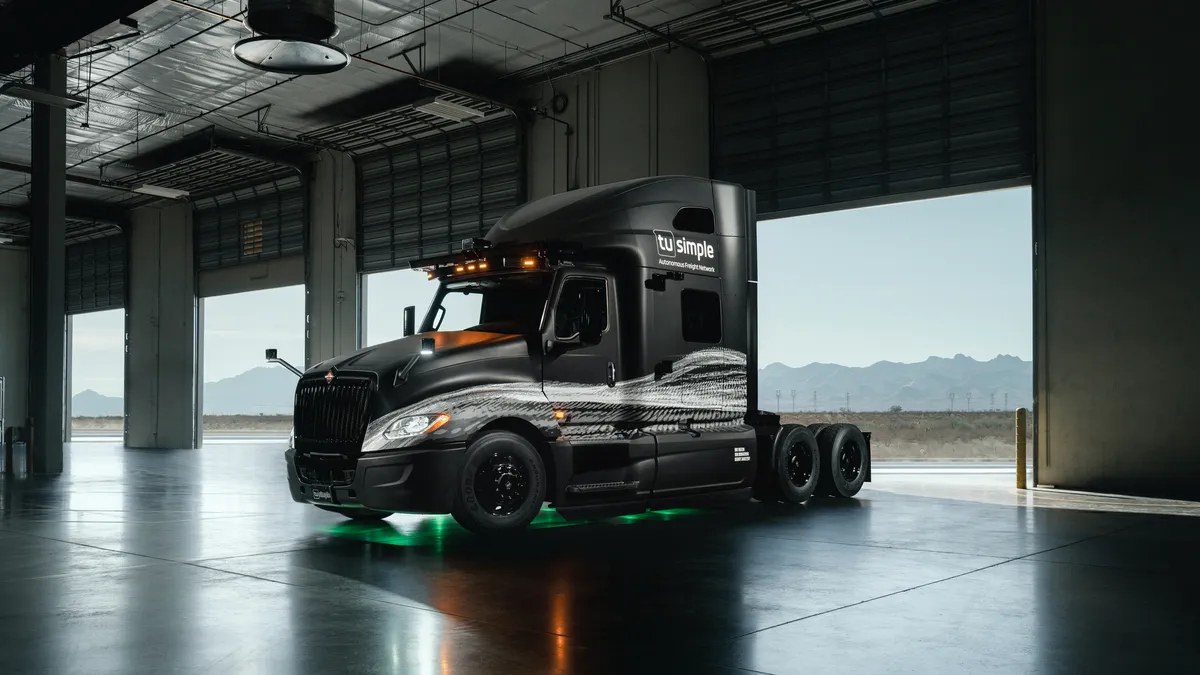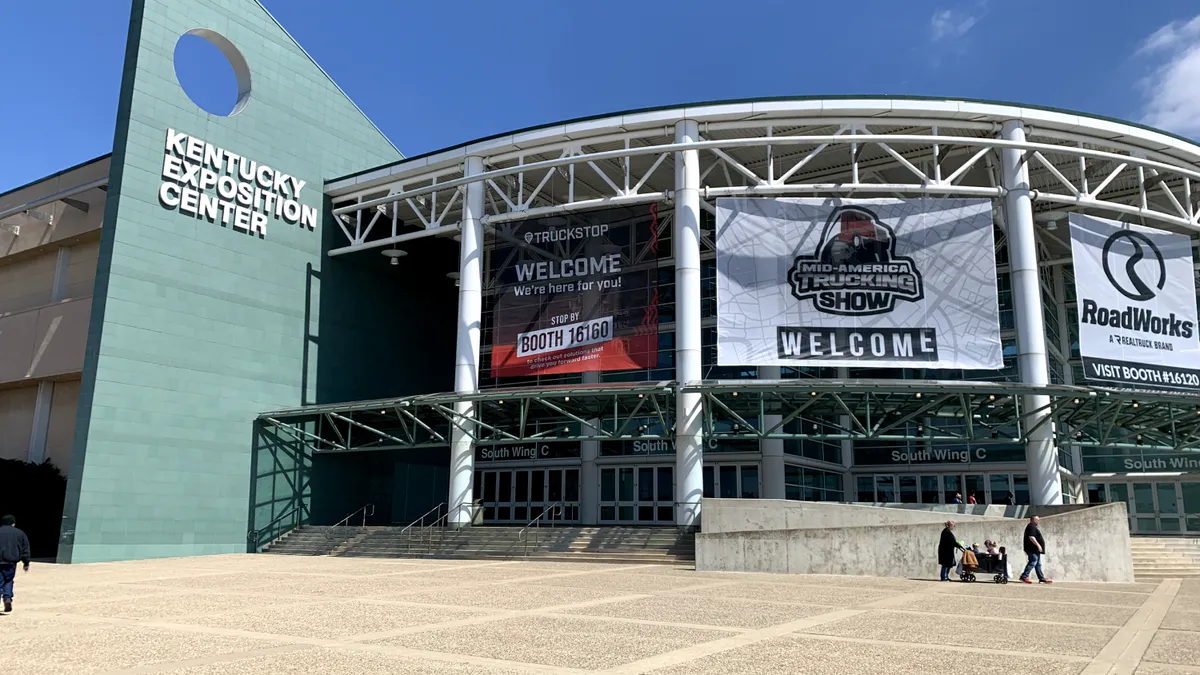Dive Brief:
- Union Pacific subsidiary Loup Logistics will become the first customer to utilize TuSimple's trucks without a safety driver in the cab, the companies said in a joint announcement last Wednesday.
- The fully driverless trucks will pick up freight out of Tucson, Arizona, beginning this spring from a rail yard on Union Pacific tracks, according to TuSimple CFO Pat Dillon. TuSimple will operate the trucks, which will use open public roads to transport goods to a distribution center outside of Phoenix.
- The deal is the first commercial test of TuSimple's "Driver Out" operations. The company plans to scale the technology through a partnership with Navistar and sell Level 4 automated trucks to carriers and shippers beginning in 2024, Dillon said.
Dive Insight:
TuSimple has ambitions as an OEM and a carrier, with plans to sell its trucks while also maintaining its own fleet.
Once the technology is scalable, carriers will be able to purchase TuSimple's driverless trucks to augment their own fleets. The trucks use three-dimensional maps to create digital paths for the vehicles to follow, and carriers will need to pay a per-mile subscription fee to operate on these automated routes.
TuSimple will also operate its own fleet to continually test the technology and offer shippers another option to transport goods when demand is high.
"A large retailer may want its own captive fleet. But it might also say, 'I like the idea of using TuSimple's fleet to help me in peak times,'" said Dillon. "It allows them to scale up or down."
Still, the company expects most of the demand to come from carriers looking to boost their fleets. UPS and DHL are already utilizing the company's technology and autonomous routes throughout the country. While a safety driver still remains inside the vehicle in those partnerships, TuSimple plans to offer fully autonomous options in the "Texas Triangle" shipping area — Dallas, Houston, Austin and San Antonio —by the end of 2023.
Driverless trucks offer a way for shippers and carriers to add capacity and flexibility to their supply chains. The trucks can operate over 20 hours a day and are not beholden to HOS laws.
"It can be very, very flexible because you're not returning a driver to his or her home base on a semi-regular schedule," said Dillon.
The trucks are also more fuel efficient — UPS expanded its partnership with TuSimple after trial runs generated 10% fuel savings.
The next two years will be focused on scaling the technology to ensure the trucks can meet the high level of service required for shippers.
"You have to show up on time and you got to do it with a level of reliability, consistency and efficiency," said Dillon. "That's what these next two years are really about."













